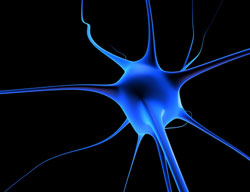Stem cells developed for Parkinson's therapy
In the normally functioning brain, dopaminergic (DAergic) cells produce dopamine (DA) which causes the transmission of signals to produce the smooth operation of muscles. In Parkinson's disease (PD), the dopamine producing cells die or are degenerate leaving patients unable to control their movements. Although feasible, the use of primary foetal tissue to replace the faulty neurons is problematic due to ethical and practical reasons. As a result, partners from the EC funded DANCE project worked on one possible alternative source, human neural stem cells (hNSCs). Previous work on these lines had been restricted because of the inherently low yield of DAergic cells from stem cells coupled with a limited survival rate for the neurons. Researchers at the Autonomous University of Madrid worked on the 'survival protein', Bcl-XL, famous for its properties of cell death repression. They discovered that this molecule had the overall effect of increasing the frequency with which the human stem cells differentiate into DAergic cells. These encouraging results appeared to be attributable to the ability of Bcl-XL to enhance the survival of these crucial neurons. PD affects more than a million people in the EU and is a very difficult condition for the patient and the carer. It is also expensive in terms of cost to the Community health care system. Further research is expected to yield cell lines suitable for the conduction of clinical trials and a possible effective therapy for Parkinson's disease.

